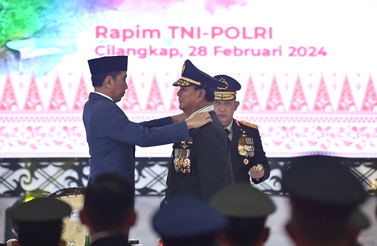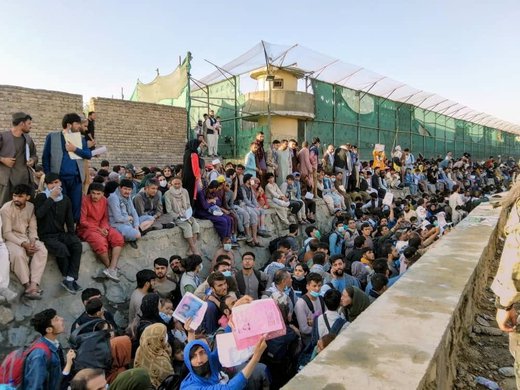On January 13, Taiwanese voters went to the polls to elect a new president and parliament following a three-way, high-stakes race. Reports of social media interference by China, alongside other forms of direct pressure (economic threats and military manoeuvres), raised the key question: Is Taiwan’s democracy in danger?
Given that Chinese actors have both the capacity and the will to influence Taiwanese elections, its democracy is operating in a high-risk environment. The 2024 general elections show that Taiwanese voters and institutions are building increasing resilience to those risks.
The final voting results came close to the stable trend lines of polls over months, and voters re-elected the ruling Democratic Progressive Party (DPP). This election day was, of course, just one episode in an ongoing story. The competition between high-tech tools of interference and systems of resiliency will continue to play out in the years to come.
How can the impact of interference be assessed? Although we can identify specific actions and events, there is no agreed way to measure the final impact on the outcome, as informed analysts have noted. It’s also easy to overlook core election drivers and fall into partisan struggles when only focusing on Chinese disinformation. This is the world of grey-zone tactics and unclear causal chains.
The incumbent vice-president, Lai Ching-te, was elected president with 40 percent of the vote. But the DPP lost control of the legislature, obtaining just 51 of 113 seats, compared with 61 in 2020 and the 57 needed for a majority. The main opposition party, the Kuomintang, or KMT, lost, as the KMT’s candidate, Hou Yu-ih, garnered just 33.5 percent of the vote, but gained a plurality of 54, including two independent, KMT-leaning seats, as well as the Speakership, won by Han Kuo-yu, who was the KMT’s presidential candidate in 2020.
A partial surprise came from the strong showing of third-party candidate Ko Wen-je, from the Taiwan People’s Party, or TPP, who won 26.5 percent of the vote and eight seats in Parliament. Ko had focused on daily issues plaguing society and taken a middle path between the DPP and the KMT regarding cross-strait relations.
The context was highly charged, given China’s repeated warnings that reunification would eventually be inevitable, increasingly robust naval and air exercises around Taiwan, and intensifying US-China tension. Hou even called the election one that would determine whether Taiwan faced war or peace. It was reported that US President Joe Biden focused his final remarks with President Xi Jinping, at their November 2023 summit, on a specific warning to China not to interfere in Taiwan’s elections.
Beijing has not hidden its dislike for the ruling DPP, which retains its aspiration for formal independence, but has focused increasingly on pragmatic governance. There is also a long record of Chinese disinformation efforts against the DPP government. The stakes on January 13 were as high as they get, and journalists from more than 120 countries were on the ground to watch.
On the issue of election interference, the three main parties in Taiwan strongly disagree on the very assessment of facts, with the DPP vocally calling out interference and the other two parties accusing the former of disinformation on social media. The centrist TPP even had a “factcheck center” website on its home page, which focused on domestic disinformation, not interference from China. Meanwhile, the DPP launched a committee to counter fake news as well.
In addition, there is the difficulty of teasing out the effects of election interference from those of underlying social economic forces. In general, throughout this campaign, the DPP polled from 15 to 20 points below the extremely high percentage it obtained in 2020 (57 percent) due to governance fatigue after eight years in power, including the pandemic years, and concerns about rising economic inequality, rents and declining growth. Polls from the summer of 2023 showed that voters at that time would have welcomed a change in governing parties: 59 percent sought a change, versus 34 percent who felt the DPP should remain in power, according to the Taiwan Public Opinion Foundation in late December. In another poll conducted by Taiwan’s United Daily News in January, 45 percent indicated discontent with the ruling party, while only 35 percent expressed satisfaction.
That said, Taiwan clearly faced risks and some red flags. The main concern in the final days before the vote related to the possibility that China could use social media to influence undecided voters (15 percent of the electorate). The DPP government expressed strong concerns about TikTok and how Chinese Communist Party actions could influence voters. Joseph Wu, Taiwan’s minister of foreign affairs, wrote in The Economist on January 3 that “the most flagrant, and yet not at all surprising, abuses are conducted by PRC surrogates in Taiwan who set up fake organisations and fake news websites, conduct fake polls and use thousands of fake social-media accounts to manipulate public debate and opinion.”
Among the issues raised by government and civic organizations was the “shadow banning” of any positive report on the DPP on TikTok and Xiaohongshu (a social media and fashion e-commerce app popular among young Taiwanese women).
Another mechanism of manipulation was narrative reinforcement of good news on China and bad news on Taiwan policy. CNN reported that according to the Varieties of Democracy Project, Taiwan in 2023 was the world's leading target of foreign disinformation, for the tenth consecutive year.
A third mechanism relates to the use of real or fake news media relays within Taiwan to fan the flames of pro-China news, as noted by Foreign Minister Wu in his invited Economist article of January 3.
Meanwhile, the main app for messaging in Taiwan is Line, which is Korean-controlled and used mostly in Japan and Taiwan. It is banned in China and does not appear to have been a conduit for disinformation.
It’s also important to note that all voting in Taiwan is done on paper ballots, and paper cannot be hacked. The vote-counting process is extremely transparent and public, as well as rapid (four hours on average).
What was the overall impact of these tools of interference? Clearly, some voters felt their presence. In its exit survey of the election published on January 23, the respected Taiwan Public Opinion Foundation (財團法人台灣民意教育基金會, or TPOF) asked about interference. While 50 percent of voters felt it was not significant and 13 percent said they did not know or had no opinion, 37 percent of voters responded that it was significant.
However, it’s also clear that the election results were not affected by any last-minute interference or surprise. The results matched the long-term trend lines of structural polls. The short-term effects may have been blunted by Taiwan’s great sources of resilience.
The first line of defence is the citizens themselves. Major groups of core supporters of the DPP and the KMT cannot be influenced and have deep-rooted party identities. The target group for disinformation was younger, undecided Generation Z and millennial voters who live in cities. But, while these young people may communicate and shop on TikTok and Xiaohongshu, they appear to keep that activity separate from their political life. Their political views are likely more heavily shaped by the post-2000 reform of educational textbooks about Taiwan history, which has fostered a deep Taiwanese identity, as have family and social groups.
The second line of defence in Taiwan is the strong cohesion of society. Of 64 countries and territories rated in World Value Surveys, Taiwan ranks among the highest in terms of social trust. Political polarization exists, but it remains compatible with high mutual trust and respect in daily life. Hundreds of thousands of energized voters showed up at the high-octane political rallies held respectively for the DPP and the KMT that were less than one kilometre apart on the night of January 12. They later mingled with their fellow citizens holding different views and went home in peace and harmony.
The third line of defence is the strength of Taiwanese electoral institutions, including a central electoral commission and safe voting and vote-counting procedures. Everyone accepted the results, and the opposition conceded defeat within four hours of the closing of booths.
Fourth and finally, the Taiwanese government has invested significant capabilities in monitoring and countering interference. This work is greatly assisted by several important civic non-governmental organizations and foundations, in particular:
- Taiwan FactCheck Center (established in 2018 and devoted to verifying false information);
- MyGoPen (established in 2015 and means “Don’t cheat me again” in Taiwanese);
- Cofacts (started in 2017 and promotes information transparency); and
- Dr. Message (created by a Trend Micro software engineer in 2018 and originally checked fraudulent websites and phony line accounts).
In sum, although Taiwan’s democracy is operating in a highly disruptive environment, its institutions and voters have shown tremendous resilience in 2024.




